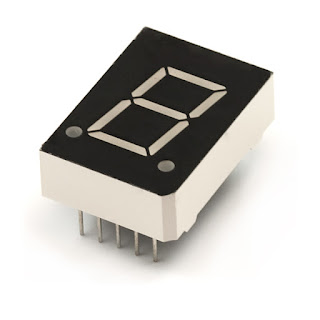HOW TO USE KEIL
KEIL IDE is basically an assembler and a compiler or whatever you name it. You can write either an Assembly or C language code and KEIL will take care of the rest for you. Furthermore, it supports many of the 8051 variants that you will face. You can download KEIL using the link below.
After successful download
and install, you may have problem getting familiar with it. Here I am giving
you a tutorial on how to use it for writing your program, compiling it, and
finally generating the HEX file.
For familiarizing KEIL,
we choose a basic program on LED blinking using 89C51
STEP 1: Create a new file
for the project.
Project>New µVision Project
Create a new folder in preferred location and a file with in the
folder and save it.
STEP 2: Select the proper
device from the new dialogue box that appeared after step 1.
Atmel>AT89C51>OK
STEP 3: When prompted select YES.
STEP 4: Select File>New for typing the code.
STEP 5: Save the new file with proper extension (eg: led.c).
STEP 6: Right click on the Source group 1 and select Add existing files. Then add the program file to the project workspace.
Target 1>Source Group1 (right click)>Add existing
files to source group 1>Add
STEP 7: Right click on Target 1 and select
options for target 1.Then set the frequency and enable Hex file generation
Target
1(right click)>options for target 1>target>set xtal (MHz)
Target 1(right click)>options for target
1>output>enable Hex file
STEP 8: Write the code in the saved file and rebuild it.
STEP 9: Open proteus design and select schematic capture.
STEP 10: Select the component mode and pick the components
needed.
Component
mode (1)>pick devices (2)
STEP
11: Enter the keywords and select the components for the required circuit. Here
we need 89c51 and LED to wire up the circuit.
STEP 12: After wiring the circuit correctly, double click on
the schematic diagram opens a new
dialogue box. Within the dialogue box, set the clock frequency and select the
path of the already written program file.
Double click on the schematic>set the clock frequency>select the program file>OK
STEP 13: Run (within the red circle shows the run button)
the simulation and view the output.





















Comments
Post a Comment